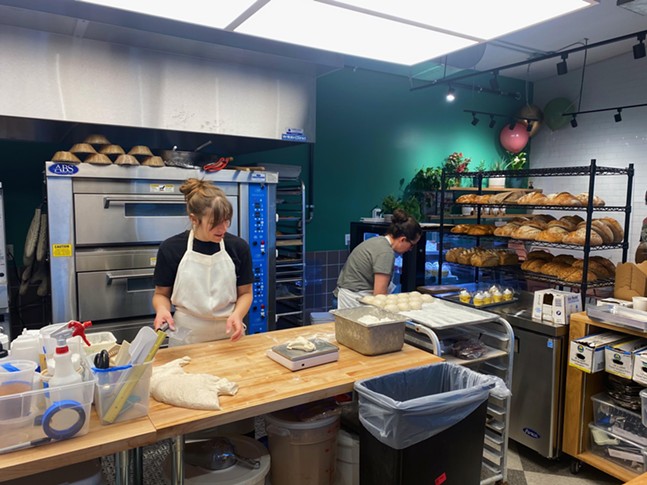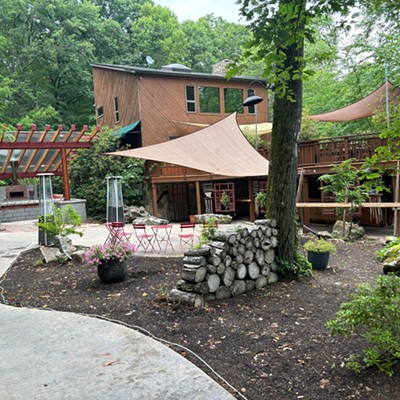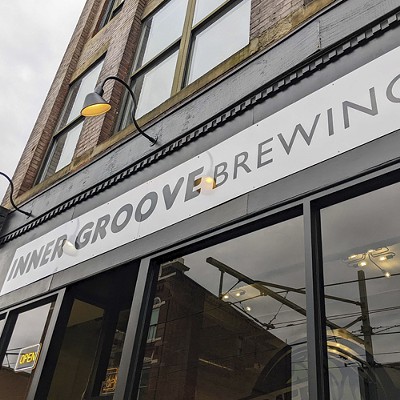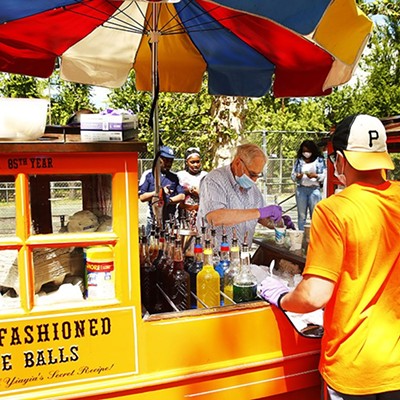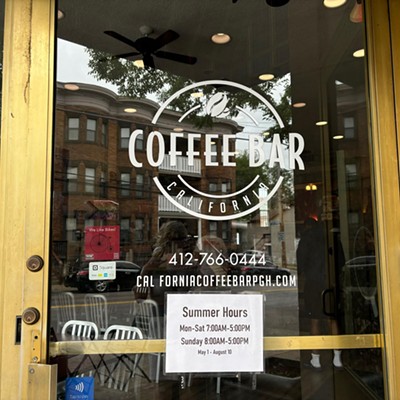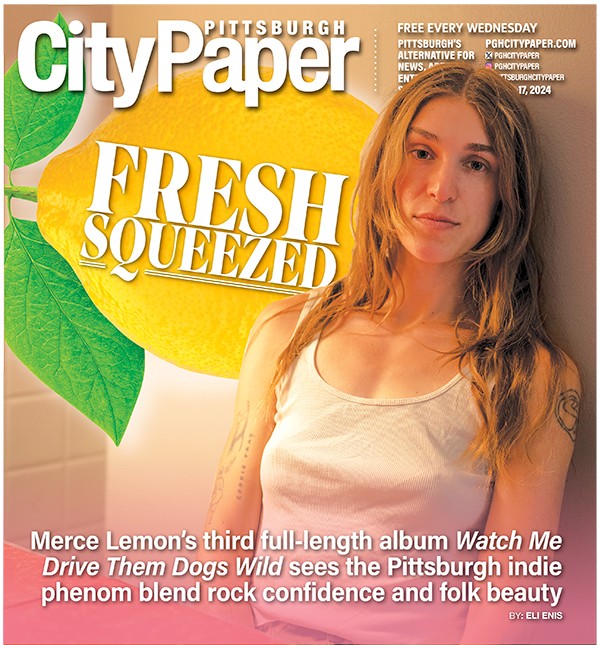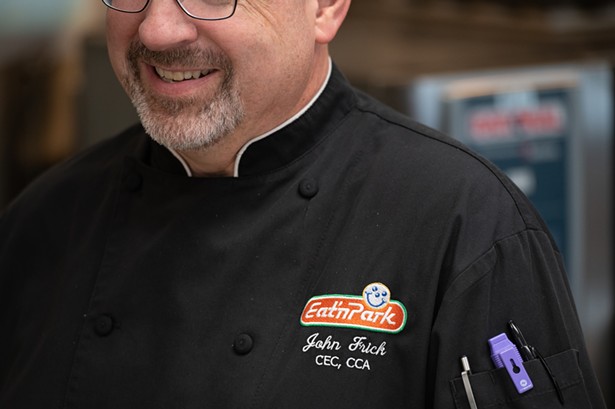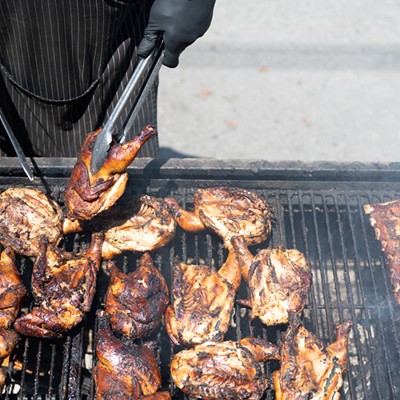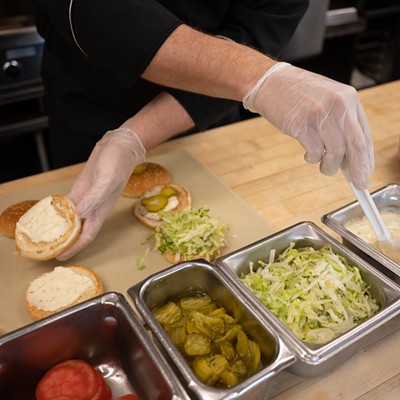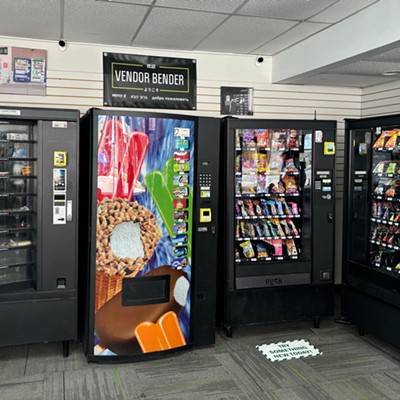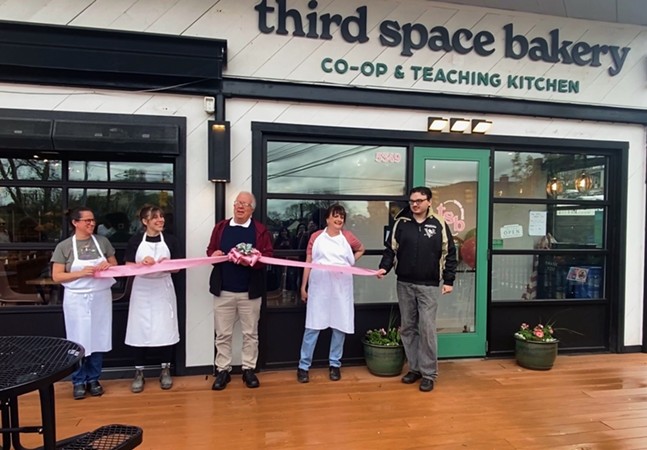
Urban sociologist Ray Oldenburg coined the term “third space” in the 1990s, but these places have existed about as long as organized society. Wherever masses gathered, third spaces followed — people just may have not been aware of them.
But one Garfield bakery, co-op, and teaching kitchen has that intentionality at the forefront of their business model.
Beth Taylor, Erika Bruce, and Chole Newman are the founders and owners of Third Space Bakery — the first bakery to grace Penn Ave. in nearly 35 years, according to Rick Swartz, executive director of the Bloomfield Garfield Corporation.
He spoke to a crowd of around 30 people at the ribbon cutting ceremony on April 12.
Taylor said they chose the neighborhood because “there is so much going on and a great vibe here — an art scene, people, great craft beer.”
Alongside its proximity to the lively, walkable business district on Penn Ave., the bakery borders Bloomfield, lies a few minutes up from Shadyside, has Lawrenceville down the road, and Friendship a few streets over.
Jane Voros, of Shadyside, said she appreciates the bakery’s convenient location when she visited the grand opening.
“Garfield is amazing,” Voros told Pittsburgh City Paper. “Pittsburgh[ers] tend to stay in their neighborhoods, so to get out is great and good for the community.”
The accessibility of Penn Ave. brings additional hope to what this proud third space can offer the community, aside from European-inspired pastries, cakes and sourdough bread.
Jillian Horan, another Shadyside resident, notes that, for those who don’t drink alcohol, third spaces are even more limited.
“I don’t drink, so I really appreciate open spaces where I don’t feel uncomfortable and can still be social,” Horan said. “For people who are underaged … bakeries and cafes and such offer really cozy, welcoming areas.”
Nil-Jana Akpinar, of Friendship, views third spaces as places “where you can spend time without spending money, without being expected to consume. [It’s] a community space.”
While most people entering Third Space’s doors are spending $3 to $9 on a treat, Akpinar’s comment reflects a problem Oldenburg warns of in his writing and research: living becoming more expensive when we don’t have access to public spaces that exist outside the confines of private ownership and mass consumption.
Take, for example, the decline of home economics due to school budget cuts, Taylor said. That’s created a growing population with less than basic culinary knowledge, and therefore a reliance on pre-made store meals and fast-food chain options that prioritize efficiency over quality. These options may seem momentarily economical, but, in the grand scheme, they’re costing more to your wallet and health, as well as distancing people from the food they eat.
At its best, a third space offers reprieve from the bustle of life’s obligations and designates an accessible space for creativity, relaxation and sociability. But what makes this third space different from others?
Dr. Michael Glass, an assistant professor of sociology and director of the Urban Studies Program at the University of Pittsburgh believes it lies within the very fabric of the business: the prioritization of collectivity and democracy.
“[The cooperative aspect] gets down to what sounds like a fundamental appreciation on the part of the workers and management about what these third spaces should really be designed to do,” said Glass.
And so far, that aspect is being celebrated by customers.
“I’m always ready to support a co-op,” Maris Wilson of Shadyside told City Paper.
And while cooperatives embrace a different environment compared to those of corporate-owned businesses and chains, it’s an avenue less taken due to obstacles.
“The history of co-ops, for ages, has been agricultural co-ops … but worker-owned is a little newer to Pennsylvania, and that’s been a challenge,” Taylor said. “Even identifying as a co-op, we had to jump through some hoops for that.”
Worker-ownership is few and far between, in part from lack of resources and a process that is difficult to navigate — and the cooperatives that exist are overwhelmingly credit unions.
The Keystone Development Center, a nonprofit that helps establish cooperatives in PA, reports 707 cooperatives in the state — yet only 50 of those have been established since 2000. And of the 707 businesses, only 15 are food cooperatives and 48 agricultural.
Meanwhile, as of 2022, 39.5% of Pennsylvania small businesses were owned by women.
Third Space Bakery took these numbers as a challenge to do their business differently. They've sought to lay the groundwork so other businesses can follow suit.
“All of us, having worked under other people, wanted to collaborate more together, as well as give our workers an opportunity to be a part of the business,” Taylor said. “We decided to bite the bullet.” They're trying to lead with transparency and want to give their employees a vote in how the business is run.
And thanks to the KDC and Maura Rapkin of Napkin LLC, who helps food-related businesses get up and running, Taylor, Bruce, and Newman didn’t have to navigate the tedious system independently. Nearly two years after they dreamed up this idea, they are ready to bring people as patrons and participants.
Third Space Bakery sports a teaching kitchen offering a multitude of cooking and baking classes that will only increase with time, varying from cooking recipes from a Persian cookbook, to a two-part class on how to bake sourdough, to a course on how to work with choux pastry — a vision originating from Taylor’s ardent instructional enthusiasm.
“In my heart, it’s always very important that people learn to cook and to cook for themselves for a multitude of reasons, just from the confidence and pleasure it brings and connection over the food,” Taylor said. “But I also love seeing, at the end of a class, people sitting down and breaking bread together over this meal that they’ve made.”
And that excitement and authenticity translates to those entering through the business’ doors.
“That focus on community is what makes the teaching portion really important to me,” Wilson said. “It’s like, let’s build up these skills together.”
And what better forum for Pittsburghers on the East End, and possibly those across the city, to gather in than one centered around something we all share in common?
Glass says the model offers an opportunity to share timeless traditions and form authentic community. “Name a culture that doesn’t have some sort of baking-based heritage,” he said. “It seems like an incredibly democratic way to move forward.”

